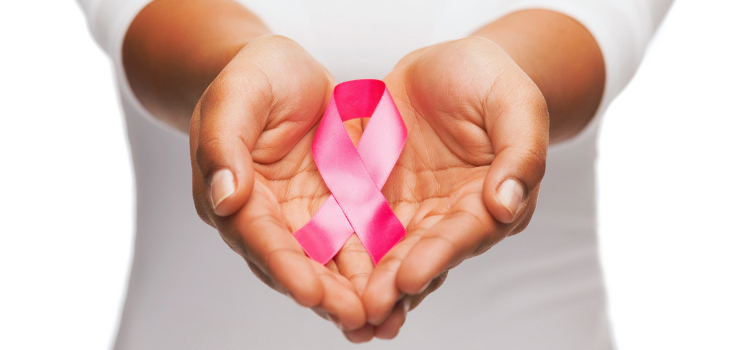cancer
Do breast cancer treatments affect cognitive functioning?
Breast cancer is indeed a biggest threat for the women. It was scarier in the past but with the passage of time things have been improved yet there is need to conduct more researches in order to improve the situation. Breast cancer screening is the first step to start with. This start makes so many things clear and gives a way to follow. This way is actually the phase where one has to go through several treatments once diagnosed with breast cancer.
Unfortunately some of the treatments have side effects as well. Side effects are though not an enigma but obviously one has to be careful about all the related things. Certainly experts are working on it to lessen the harmful effects of the prescribed treatments not only with regards to breast cancer but also the other diseases.
Side effects of chemotherapy for breast cancer…
Several treatments have different side effects. They vary from each other with regards to the procedure as well as the patient. It is said that chemotherapy effects the cognitive functioning of the patient. Researches are working to find out what exactly causes this and which parts of the brain are getting affected by the said treatment. Like breast cancer screening, doctors have done screening of the brains as well of those patients who are going through the chemotherapy for their breast cancer.
It was very much evident that the functioning of the brain which is related to the planning, attention and memory seemed fragile in the patients who were undergoing the chemotherapy than those who have not gone through the same procedure.
Accumulating the findings…
These findings regarding the side effects of chemotherapy will further help out to find out the ways to reduce the side effects of this particular treatment. It has also confirmed the complaints registered by many women regarding their cognitive functioning. It has also emphasized to realize this matter seriously and to work together to solve the issue.
Shelli Kesler who is the head of this study says, “There has been a controversy whether it’s the disease itself or hormonal blockade medications or chemotherapy”.
This particular disorder is actually the “chemo brain” which is commonly noticed in the patients with chemotherapy treatment. There were several women included in this experiment and those who didn’t have any chemotherapy have shown combatively better memory condition and functioning. It was also observed that issues related with the memory are also linked with the person’s own ability. Here the importance of breast cancer screening becomes more essential.
Reasons behind the cognitive disorder…
Several reasons or causes have been presented like,
- Chemotherapy being a toxic for the brain’
- This procedure may cause inflammation to the brain
- This treatment is also linked with some damage to DNA
This is not only the chemotherapy but hormonal therapy is also said to has some side effects for the brain functioning. So it’s not just the chemotherapy.
Shelli Kesler says, People sometimes think women are exaggerating [chemo brain] but this study showed that self-reported impairment actually correlates with brain impairment pointing to the fact that they should not be ignored”.
The real thing is to work together to lessen the side effects by eliminating the dangerous and problem creating elements in the said treatments as we have to proceed with these treatments if diagnosed with the breast cancer.
Author Bio :
Jasmine William an enthusiastic writer and a researcher who tend to follow a path which leads her to the road of wellness. She also wants others to follow the same roads. Health, wellbeing and breast cancer are particularity the topics she prefer to write on. She always uses her pen to write the authentic and informative stuff. You can follow her on twitter
Millions worried they’ll be left helpless in old age – find out more about health in an aging society
Nearly three quarters of British adults think they will have care needs in older age, however a fifth don’t know who will look after them if they do.
That’s according to new research released today which saw almost half say they don’t expect their family to look after them if they have care needs when they age.
The research reveals that under a quarter (24%) of the population feel older people are valued by society, illustrating the need to change perceptions of ageing and ensure older people are appreciated and treated as individuals.
The survey by Bupa of more than 2,000 people reveals that old age is a regular consideration, with 24% of respondents thinking about what life will be like in old age a few times a week – 17% think about it every day.
When it comes to paying for their care 40% believe they would have to fund care from their own savings, while only around a quarter say they think their care would be funded by the government, and almost 30% have no idea.
To find out more we have interviewed Professor Graham Stokes a leading dementia specialist.
Patient Talk – Can you tell us a bit more about the survey?
PROF STOKES Yes, the survey was looking at how people might consider life when their aged but also what they feel about their care needs and who might help them receive care when they’re in their later years.
Patient Talk What kind of method was used?
PROF STOKES Yes, we interviewed over 2000 people at the beginning of this year and inquired about their attitudes to aging and what they feel might happen when they are aged.
Patient Talk What were the main results?
PROF STOKES Well I think what leaps off the page, is that about three-quarters believe that they will have care needs when they’re in their old age. And they only think about maybe half will have their care needs met by their families, so that’s the negative side. But what also I think can be quite bleak is that less than a quarter feel that they will be valued by society, so that can be quite dispiriting.
Patient Talk How valid are the concerns expressed?
PROF STOKES I think they’re true. I think there’s a strong dose of realism in there. I think the first thing we have to say is that there’s still a misconception about old age. It’s often felt you’re 65, you retire, you get your pension… Well we all know that the retirement age is going to be more and more flexible and there will be people working into their late 60’s as a matter of norm, and probably within a generation or two, 65 as the starting point of old age will be completely meaningless. Were actually talking about people who are contemplating their future when they’re 75+, 80+, because on average now people should expect to live to around 80, and if you’re a woman, probably live well into your 80’s.
Patient Talk What options are actually open to older people in terms of care?
PROF STOKES I think what’s happening is that people are healthier for longer. They are surprising themselves. And so if you talk to people who are going through their early, mid-70s they will say they don’t feel old. But what does happen is that when you approach 80, I won’t say the body goes off the cliff, but you do see an acceleration of chronic diseases, all the common chronic diseases we associate with old age. It’s problems with blood pressure, its heart disease, its diabetes, its Parkinson’s, osteoporosis and for people aged over 55, dementia is their biggest worry. It can surprise people because they’ll think what about cancer, but all the research shows in the UK once you pass 55 dementia is the greatest concern and as a result, given you have that on the horizon, the question then is what do I do? And in years gone by, you would look to your family and I think the reality is that people don’t do that anymore. I think one, because they don’t wish to be a burden. Aged people aren’t strange creatures different from the rest of us, just an aged version of a younger person, and their personalities don’t change, their attitudes rarely change and no one wants to be seen as a burden whether it be young or old. There is this fear of being a burden. I think there is a greater appreciation that realistically people realise they may have many illnesses and ailments simultaneously, and that could just be excessive for any family to care for so I think that’s a real worry. But then the whole nature of family life has changed. We have smaller families so responsibility would fall on one or two children. We’re more mobile than ever before. We’re not all living around the corner. And so when we say they will be cared for by their family, it will probably be a daughter that lives about 100 miles away and so how will that work? People logically start to think about the NHS. Well the national health service pulled out of caring for aged people 25 years ago and so now it’s about care homes, and many people still have very old fashioned ideas about care homes, they don’t see them as communities, they don’t see them as communities that put the person first. No, it’s about your individuality, guiding not only your care but your quality of life so there’s a lot of old fashioned ideas around but a proportion of people will end up living in a care home.
Patient Talk How might they be funded?
PROF STOKES Well I still think there’s a lot of misunderstanding about caring for aged people. I think people believe that if you have got care needs that mean you can’t live by yourself or you can’t be looked after by your family, it’s like the NHS, the service is free, the point of delivery. Which isn’t the case, as I’ve said, long gone are the days when the NHS gave you living space in the hospitals and thank goodness that is so. In bygone years, whilst your care would be free, it would be in an open plan ward and in essence what your home would be is nothing more than the bed locker in the cubicle curtain, that would be it. Now people live in care settings, in care homes and you’ll be means tested. We define it not as chronic health care, but social care and soon as its defined as social care, your needs will be means tested against your income, your savings and the equity in your house.
Patient Talk Would it be true to say older people are less valued?
PROF STOKES I don’t think that is wrong. I think it’s the case that it’s a problem that goes back in time, that once you’re are no longer seen as being economically productive, not being able to contribute to your family, then you’re seen as more of a burden, and as you seem more of a burden, your devalued. And so as aged people start to talk, and it’s only about a quarter that feel aged people are valued by society and I think that’s very true and that is a shame because that neglects what people who are aged have contributed over decades and they still have so much more to contribute.
Patient Talk Have the baby boomers affected the perceptions of older people?
PROF STOKES I think we’re on the cusp if not a revolution, a transformation, in how we see aged people. In the UK the first baby boomer will reach 75 in 2021. If you wanted a guide as to when we might start talking about late middle age moving into early old age it’s around 75 because that’s when we start to see the rise in chronic diseases and disabilities. And from 2021 onwards, I think we’ll see a major change in how aged people wish to receive their services. For me it’s humbling, working with aged people today that they’re so grateful. They’re so grateful for not very much, they’re so stoical. That is not a baby boomer. The baby boomers are more self-centred, they’re more like consumers, the want quality, they want it now, the services shaped around them. There will be a far more demanding group of aging people, which I think quite rightly, so they’re not going to accept services as they are today, when they need their services when we go through the 2020’s.
Patient Talk What are the main medical conditions faced by older people?
PROF STOKES Yah, everybody dreads cancer, everybody dreads dementia. Most accurately, these are not the preserve, more commonly seen in old age. So the average age to be diagnosed with Alzheimer disease, the most common cause of dementia, is the late 70’s. So you have these major pathologies like Alzheimer’s disease, like the cancers, but then you have the host of chronic diseases such as diabetes, osteoporosis, unstable blood pressure, chronic heart diseases, Parkinson’s disease, breathing difficulties and they will limit the quality of your life. And I think when you talk to many middle age people about their health concerns, they’re not expecting the trauma and the tragedy, what they’re fearing is just a diminishing life quality as they lose their strength, their stamina, their speed because they’re becoming more frail.
Haematuria – what are the signs and symptoms of blood in the urine. Also can I have some advice for my father!
The reason for reproducing this article now it that I would like your help. My father has spent the last couple of weeks. He has been suffering from Haematuria. I would be very keen to hear the stories of people who have had blood in their urine and dealt with Haematuria. Please do share your thoughts and stories in the comments box below this article.
Introduction
Finding blood in your urine can be very frightening and must be investigated by a doctor, but it’s not usually a sign of anything life-threatening.
If you notice bright red blood in your urine, or if your urine has turned red or brown because it has blood in it, see your GP.
Sometimes, urine may contain only a small amount of blood invisible to the naked eye and is only apparent when a urine test is carried out for something else. This still needs to be investigated by your doctor, as healthy urine should not contain any detectable amounts of blood.
The medical name for blood in the urine is haematuria. If blood in the urine is obvious with the naked eye, it is called “macroscopic”, or “visible haematuria”. If the blood can only be detected with laboratory testing, it is called “microscopic”, or “non-visible”.
The blood will have come from somewhere within the urinary tract – the kidneys, bladder or the tubes that urine passes through. It is often the result of a urinary tract infection (UTI), such as cystitis.
This page outlines the most common reasons for blood in the urine, to give you an idea of what may be causing the problem. However, this guide should not be used to self-diagnose your condition, and it’s important to see your GP for a proper diagnosis.
Is there definitely blood in your urine?
Before you read on, it’s worth considering whether you have recently eaten beetroot, as this can colour the urine pink and cause unnecessary alarm. Some medicines, such as the antibiotics nitrofurantoin and rifampicin, can also turn your urine red or brown.
Check that the blood is actually coming from your urine and not your vagina (if you’re a woman) or back passage.
Common causes of blood in urine
These include:
a bladder infection (such as cystitis) – which typically also causes a burning pain when you urinate
a kidney infection – which may also cause a high temperature and pain in the side of your tummy
kidney stones – which may be painless, but can sometimes block one of the tubes coming from your kidneys and cause severe tummy pain
urethritis – inflammation of the tube that carries urine out of the body (urethra); it’s often caused by a sexually transmitted infection (STI) such as chlamydia
an enlarged prostate gland – this is a common condition in older men and nothing to do with prostate cancer; an enlarged prostate gland will press on the bladder and may also cause problems such as difficulty urinating and a frequent need to urinate
bladder cancer – this usually affects adults aged over 50 and can also cause you to urinate more often and more urgently, as well as pain when urinating
kidney cancer – this also usually affects adults aged over 50, and can cause persistent pain below your ribs and a lump in your tummy
prostate cancer – this is usually only seen in men aged over 50 and usually progresses very slowly; other symptoms can include needing to urinate more frequently and urgently, and difficulty emptying your bladder
Seeing your GP
Your GP will ask about your symptoms and carry out a physical examination to help determine the cause of the blood in your urine. For men, this may include a rectal examination and women may have a vaginal examination.
They will also arrange blood/and or urine tests to look for signs of an infection. If they think that an infection is likely, they may prescribe some antibiotics before you get your results and will refer you to a specialist if your test results later show you don’t have an infection.
In some cases, your GP may recommend keeping an eye on your symptoms to see if they get better on their own over time.
Referral to a specialist
Your GP should refer you urgently to a specialist if any of the following apply:
- you have visible blood in your urine and no pain, and tests show there is no infection
- you are 40 or over and keep getting UTIs and blood in your urine
- you are 50 or over and a urine test picks up unexplained non-visible blood in your urine
- you have a lump in your tummy (a possible tumour) that was picked up during physical examination by your doctor or during a scan
- non-visible haematuria is picked up during a test, particularly if there is also protein found in the urine
You will be referred to a hospital urology or nephrology department, or a specialist haematuria clinic, for further tests to identify the cause of your symptoms.
These tests may include more blood and urine tests, an ultrasound scan, an X-ray and a cystoscopy. This is a procedure used to examine the inside of the bladder, using an instrument called a cystoscope.
Managing Arthritis Pain with Diet and Home Ultrasound
Arthritis pain effects approximately 50% of adults aged 65 and older. In addition to causing chronic, life-altering pain, Arthritis reduces function in the joints it affects.
Check out this brilliant article by Shirley Smith. Please feel free to ask Smith any questions in the comments section below!
‘Arthritis’ is a broad term used to refer to more than one hundred different rheumatic diseases and conditions. In every case, there is inflammation of a joint accompanied by pain, swelling, and stiffness. The possible causes of arthritic conditions can be many. That said, because arthritis is primarily an inflammatory disease, the treatments generally involved bringing down the inflammation. There are a few ways to do this.
The Power of Foods and healthy living
I underwent 34 rounds of chemo for leukemia. Cancer isn’t something you can solve with eating healthy foods. However, I ate incredibly healthy, and exercised almost every day. The doctors were very impressed at my ability to tolerate the chemo.
Before I was diagnosed, I put myself on a major health food kick (because I knew something was wrong). I feel like it almost worked. A diet of massive amounts of anti-inflammatories wasn’t quite enough to kill cancer on its own. But, combine that with chemo, and you have a powerful combination.
Anti-inflammatory foods are also able to bring down inflammation, and help manage arthritis pain. As an example, ginger has been shown to have anti-inflammatory properties similar to ibuprofen and COX-2 inhibitors such as celecoxib (Celebrex). Ginger also suppresses leukotrienes (inflammatory molecules) and switch off certain inflammatory genes, potentially making it more effective than conventional pain relievers. Ginger also reduces nausea and vomiting and is a proven treatment for motion sickness and chemotherapy-induced nausea.
Studies: In a 2012 in vitro study, a specialized ginger extract called Eurovita Extract 77 reduced inflammatory reactions in RA synovial cells as effectively as steroids. More info here: http://www.arthritis.org/living-with-arthritis/treatments/natural/supplements-herbs/guide/ginger.php
One of the things I learned from this process is that sometimes, you do need to call in the heavy hitters. If you have cancer, you probably should take chemo. The same login holds true for arthritis. If you have arthritis, you probably should at least try the drugs the doctors recommend. That said, I saw first-hand just how powerful food can be. While I was awaiting treatment, my blood numbers were stable. This was pretty incredible. When people have acute lymphoblastic leukemia, they generally go downhill very, very quickly. I wasn’t able to cure my cancer with ginger, and other health foods. However, I was almost able to keep it at bay. To me, this was still rather incredible. The foods I was eating where having a very significant effect on killing my leukemia.
When we added in the chemo, my cancer didn’t stand a chance. I was in remission within days. I still had to deal with 2 years of chemo, but that was just to make absolutely sure we got every last bad cell. When it comes to treating arthritis, the same applies. It’s probably a good idea to take the drugs that your doctors suggest, but don’t underestimate the power of food’s ability to help. It’s powerful medicine.
Home Ultrasound
Finally, home ultrasound can also help manage arthritis pain. Ultrasound Therapy stimulates increased blood flow to affected joints. Due to their design, joints have limited blood flow – as a result, they recover from arthritis flare-ups very slowly. Unfortunately, slow recovery is not the only problem associated with limited blood flow.
Because of comparatively poor circulation waste matter can build up in joints causing extreme inflammation (which is the reason for pain) to arthritis sufferers. Fortunately, both of these problems are helped by the use of ultrasound therapy to increase circulation to the affected areas simultaneously working to heal the joint and flushing toxins and waste matter from the joints. More information about how home ultrasound machines can help manage arthritis can be found here
From my own personal history, I’ve found that some diseases (such as cancer and arthritis) can’t be cured just by eating vegetables, or yoga, meditating, or a juice cleanse. However, just because you can’t cure a cancer outright with broccoli, that doesn’t mean you should give up on broccoli. That holds true with arthritis as well. Taken together, prescription drugs, an anti-inflammatory diet, and a home ultrasound machine comprise an effective method to help manage arthritis pain.
Natural cures are very popular, and very important. Personally, I don’t think I would have survived my chemo treatments without the healing power of food. However, I think it’s important to remember that the best strategy is to use a combination of natural cures, and the best medications medical science has to offer. For me, that was a winning combination.




